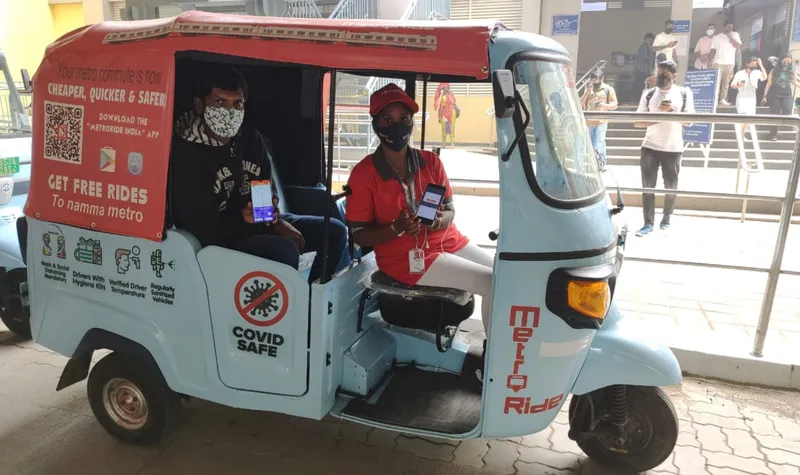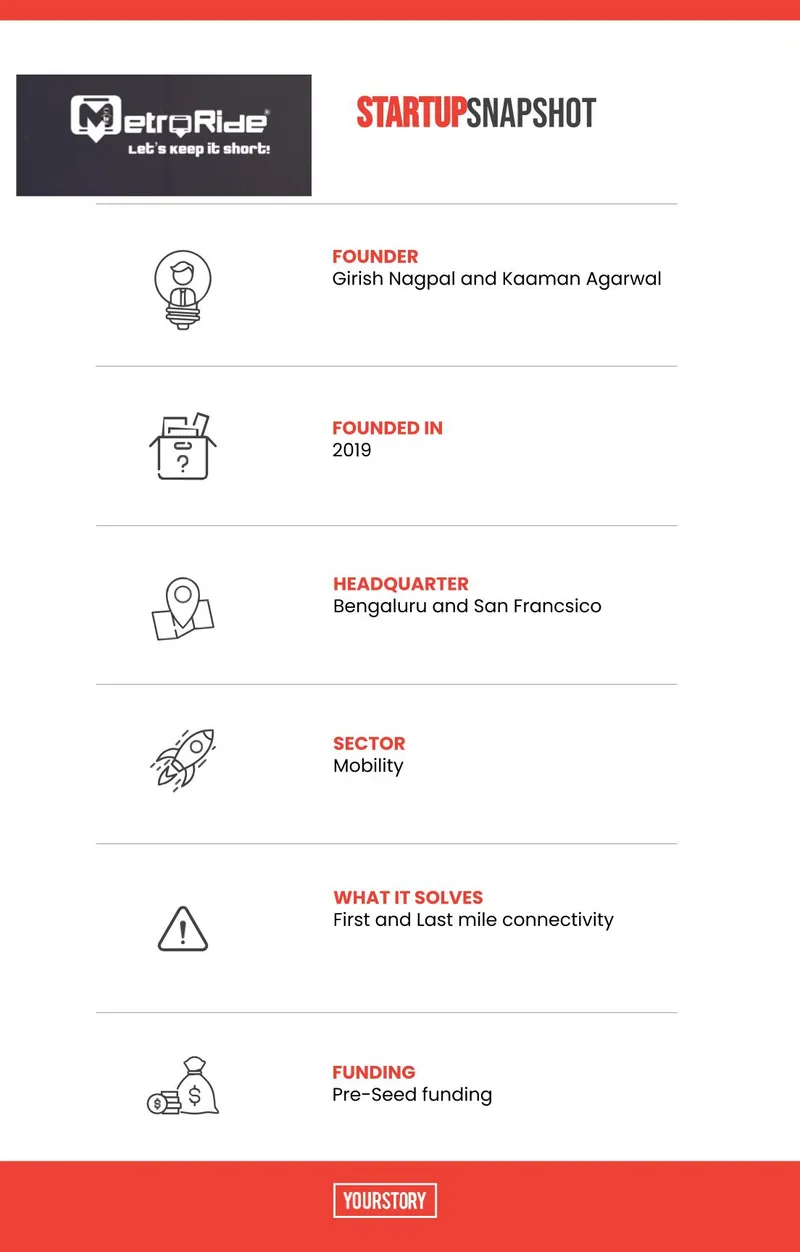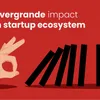These entrepreneurs started up in the electric mobility space to solve for first and last-mile connectivity problems
MetroRide is a Bengaluru and San Francisco-based EV startup that provides first and last-mile connectivity
Metro lines have been plying in some of the top metro cities in India for some time now, but they are not yet accessible by many. Girish Nagpal and Kaaman Agarwal faced this problem not just in India, but on a global level.
A resident of South Bengaluru, Girish faced this problem when he tried using the Namma Metro service from JP Nagar to reach his office in the CBD area.
“I was amazed to see there was absolutely no way to reach the metro station in a reliable way. Taxi drivers would cancel rides as they didn’t want to go a short distance, and most metered autos would reject coming to the preferred destination or demanded 2x the meter fare,” says Girish, a serial entrepreneur.

Surprisingly, his friend Kaaman Agarwal, who was based in the East Bay in California, also faced a similar issue while using BART (Metro rail in the Bay Area) to travel to San Francisco City. They also spoke to over 300 metro commuters in India and realised this was a recurring issue.
This led them to start , an AI-driven electric mobility platform that offers first and last-mile connectivity to high-frequency destinations.
Started in 2019, the Bengaluru and San Francisco-based startup leverages AI, IoT, and data to deliver a hassle-free experience.

The workings
Kaaman has 18 years of experience in building tech solutions with big corporates like GE, HBO, 21st Century Fox, and Oracle. His expertise lies in the cloud, analytics, and AI.
Speaking about MetroRide, he says, the platform is completely cloud-based and has enabled AI in every process of the business.
“We also leverage IoT devices to offer our riders the best and the most reliable commute option. The product philosophy was “complexity under the hood, simplicity on the wheel”. So what the user gets is a simple, user-friendly interface,” he adds.
He explains the rides can be booked with the MetroRide mobile app (iOS & Android) or an AI-enabled SMS chatbot. The app detects people’s location and guides them to the closest MetroRide stop. One has to just select the destination and confirm the booking.
The vehicle picks up and drops people at their chosen MetroRide stop. Payments can be made using the MetroRide wallet, which is connected with almost all the major payment gateways.
“We offer subscriptions to our regular customers to make their commute hassle-free and cheaper,” says Girish. He explains the model was built with a premise of “how not to be like other ride-hailing platforms,” and create a clear differentiation.
“The first use-case we have started with is the ‘metro connectivity’. Our ride-hailing electric mobility platform provides vehicles on fixed routes starting from metro stations and catering to a radius of up to 4 km. We promise a minimum wait time and very economical transport to and from the metro stations. MetroRide is a 100 percent cleantech company committed to the use of electric vehicles only,” says Kaaman.
Ensuring safety during COVID-19
By the time they were ready with their solution, COVID was at its peak, so they added many safety measures for its drivers as well as passengers.
“We provide COVID safety kits to all drivers, masks are mandatory for all, regular sanitisation of vehicles, installation of physical separators between passengers and also between driver and passengers, monitoring of the drivers’ body temperature, etc. This was a blessing in disguise as commuters prefer our safe and hygienic vehicles over regular autos,” says Kaaman.
Revenue model and plans ahead
“We created our whole system based on “affordability and minimal wait time” – two of the most critical needs of a daily commuter. With a clear focus on these two KPIs, we’ve devised our processes and tech stack to make our competitors redundant,” says Kaaman.
“Our ride tariffs start from Rs 10 and the average ticket size is Rs 14. All that with a minimal wait period, and that’s the reason we have many repeat customers,” he adds.
The startup said it ensures the drivers make more money by doing more rides on predictable routes. This reduces their downtime and makes them earn at least 25-30 percent more every day.
“Our revenue comes from B2C as well as B2B tie-ups. Over and above the ride commissions, MetroRide has created a proprietary AI-based hyper-local advertising platform to help local businesses promote their products and services to targeted customers while they are on board. Using these revenue streams, we target our EBITDA margins to be upwards of 20 percent,” adds Kaaman.
According to a Frost and Sullivan report, EV sales in India is growing at 26 percent, and the size is expected to touch $707.4 million by 2025. The market opportunity is at $206 billion.
Startups like , , and are strongly focused on the last-mile connectivity segment.
Speaking of the future Kaaman says, “Our vision is to become the most preferred daily commute partner. We currently have a presence in three Indian cities, and in the next year, we plan to increase our footprint in India as well as get our first station launched in the USA. We aim to serve 7.2 million customers by the end of next calendar year.”
The startup aims to target India and the USA as its primary markets and become a global player in the urban mobility sector in the coming years.
YourStory’s flagship startup-tech and leadership conference will return virtually for its 13th edition on October 25-30, 2021. Sign up for updates on TechSparks or to express your interest in partnerships and speaker opportunities here.
For more on TechSparks 2021, click here.
Edited by Megha Reddy









